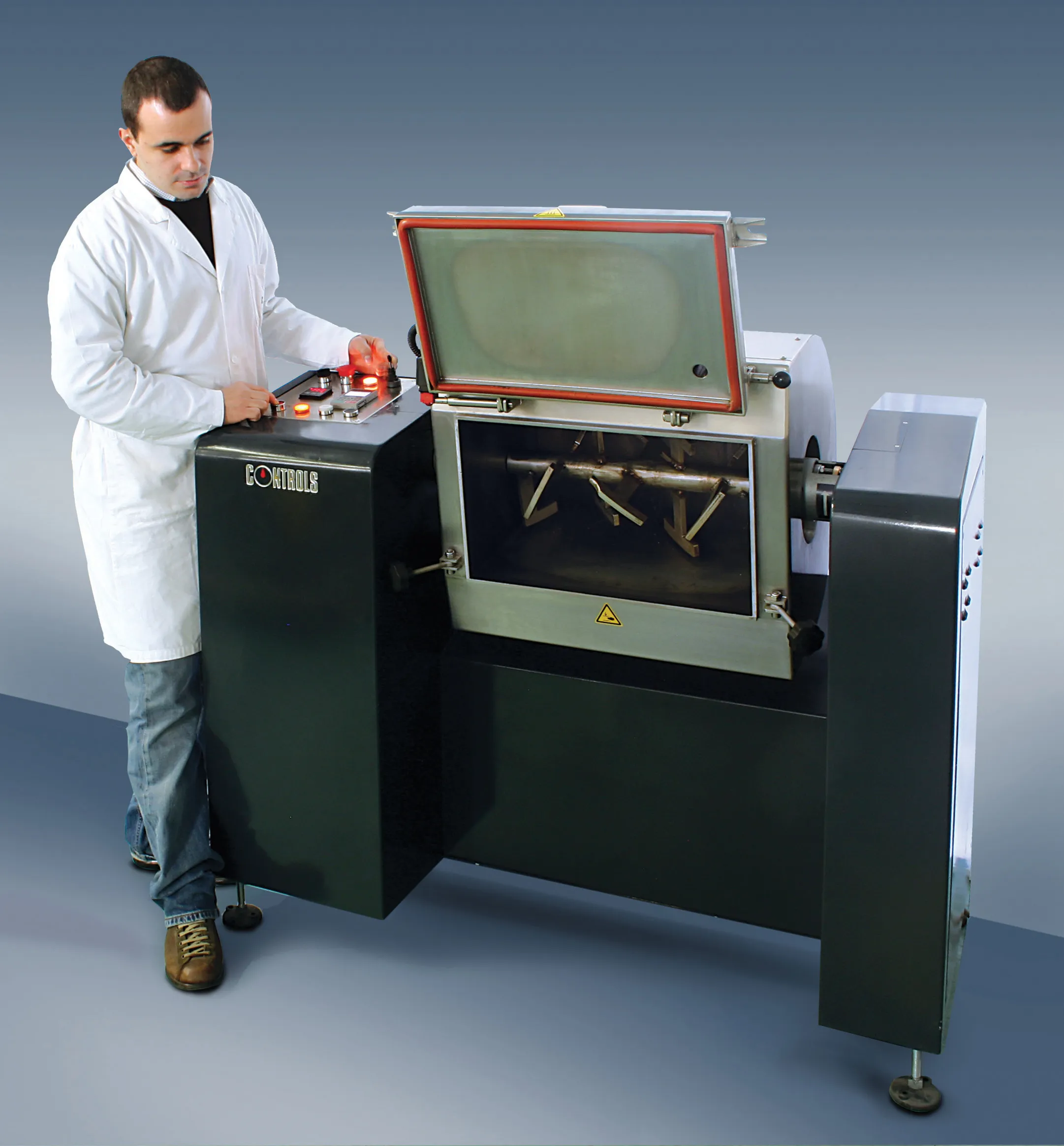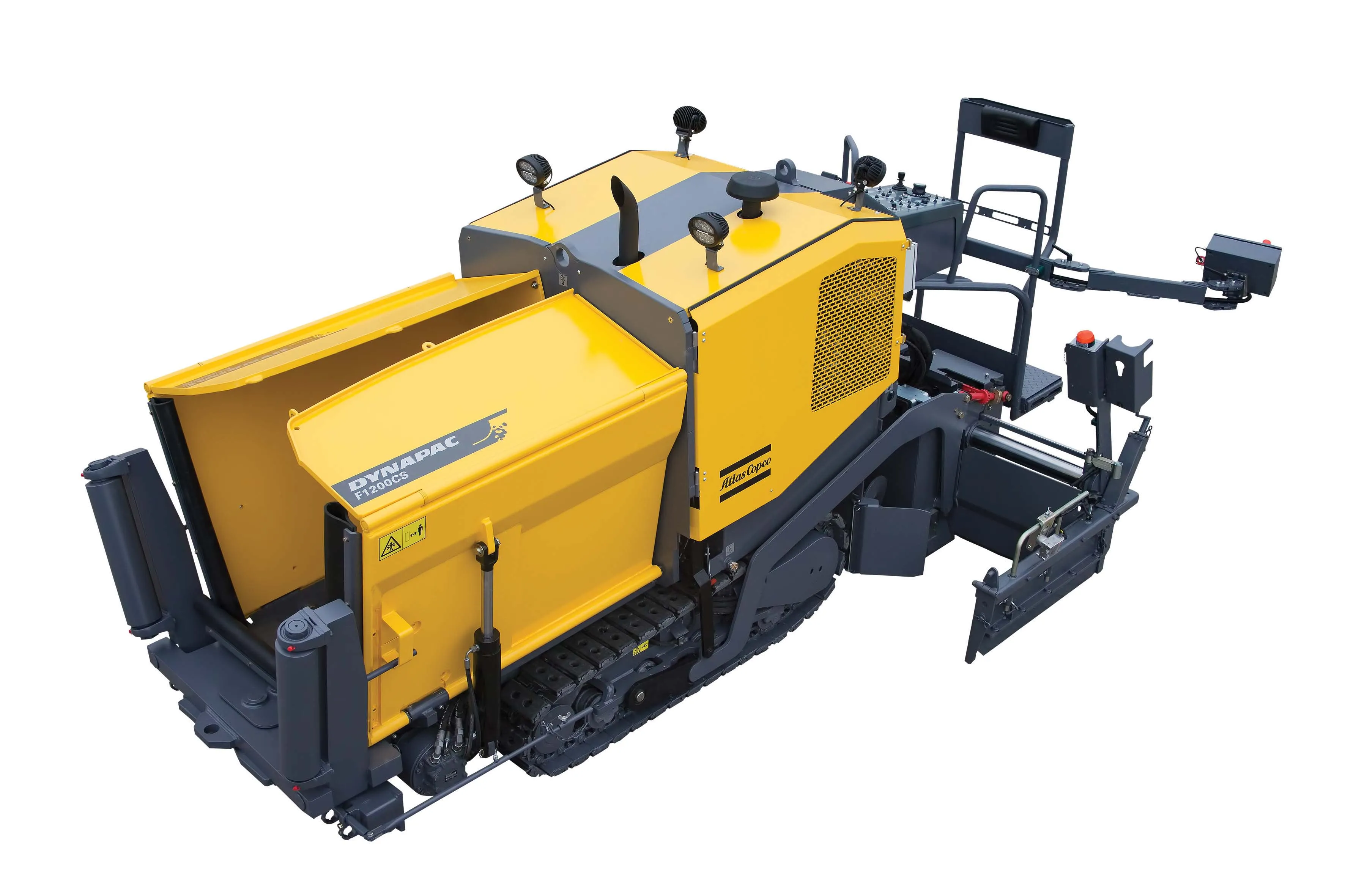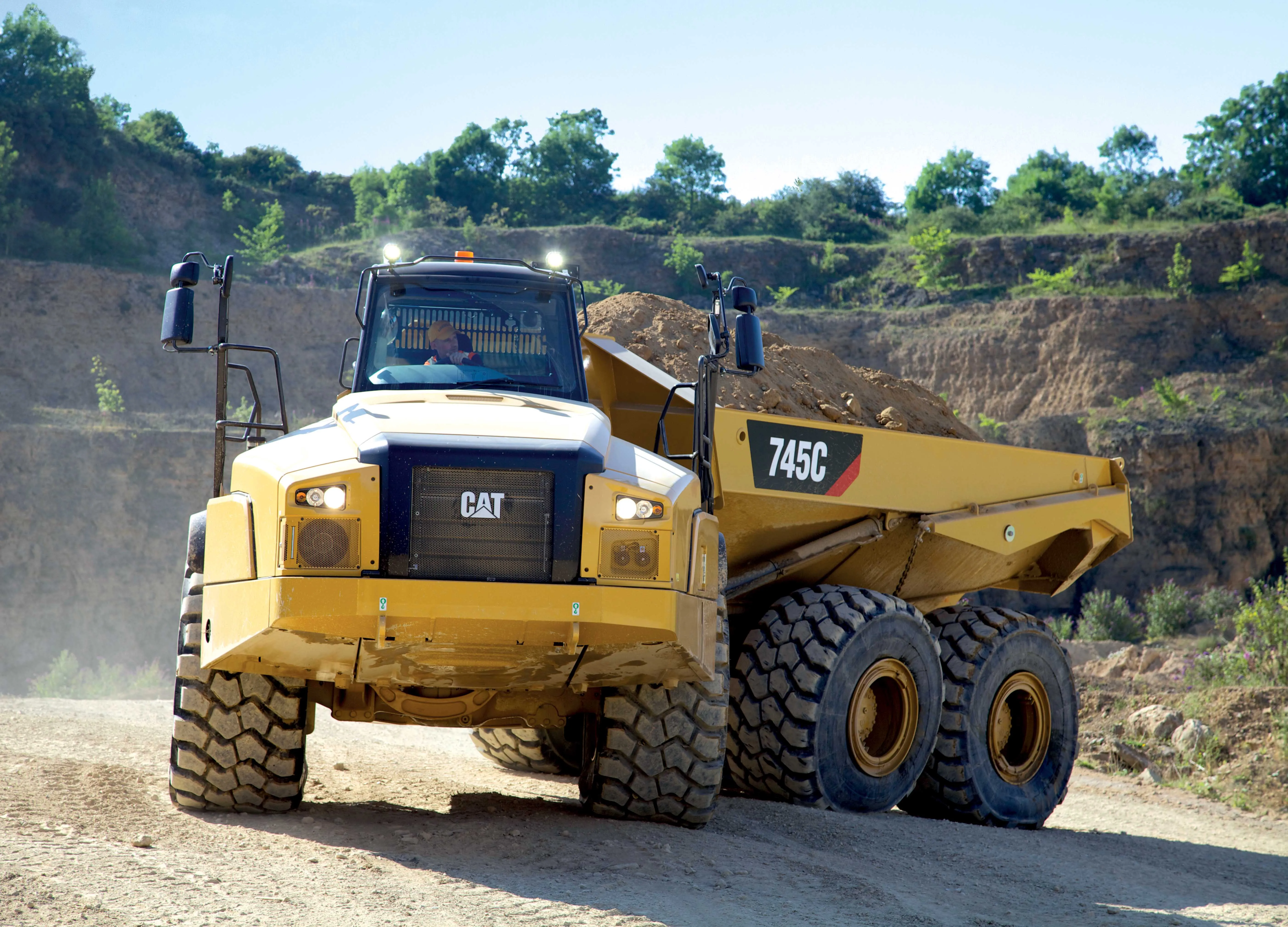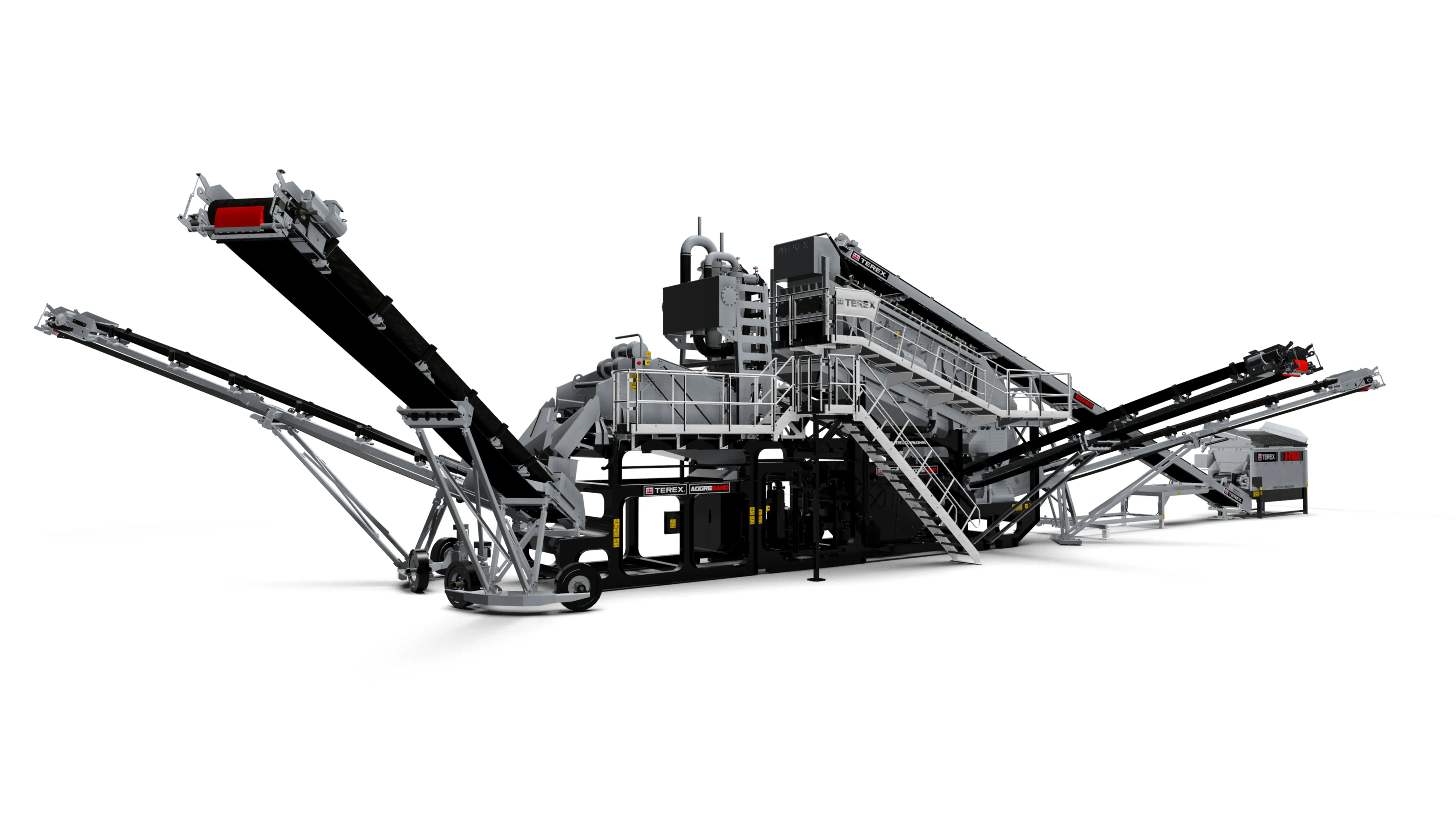Sophisticated technology is now being used to make the testing of a wide variety of materials quicker and easier as Patrick Smith reports. Ever since the CE mark became mandatory for asphalt mixes, it also became necessary and important to update the testing equipment and systems used for testing such materials.
February 14, 2012
Read time: 7 mins

Sophisticated technology is now being used to make the testing of a wide variety of materials quicker and easier as Patrick Smith reports
Ever since the CE mark became mandatory for asphalt mixes, it also became necessary and important to update the testing equipment and systems used for testing such materials.The mark is a mandatory conformity mark on many products placed in the
Companies involved in the materials testing business make sure their products meet, and often exceed the requirements and are thus able to find worldwide markets.
They are also integrating the latest computer software to make testing easier, and to allow the results to be quickly calculated, accessed and stored.
For example,
According to the company, an essential scope of the equipment is that of simplifying the user's task so that testing and test instruments are managed automatically with user guidance throughout.
"Its modular design allows it to be configured for asphalt mix testing according to the methods prescribed by both the European and American standards currently in force," says Tecnotest.
The structure comprises columns and cross beams secured to a strong base that provides sufficient stability even during tests at high frequencies. The upper cross beam houses the double acting actuator for applying static and dynamic vertical forces as well as the servo valve for controlling load and axial displacement feedback. The actuator has a capacity of 25kN, and the frame has been designed to sustain greater forces (up to a maximum of 100 kN) thus enabling the system to be integrated (on request by the customer) with a second actuator and lower cross beam in order to increase performance.
"Static and dynamic strains are applied by means of a servo hydraulic system, which in contrast to pneumatic versions, ensures that frequencies up to 60 Hz are effectively guaranteed. Even at such working speeds the machine is sufficiently accurate to ensure that the theoretic curve, the desired curve and real curve effectively correspond," says Technotest.
"Calibration procedure software enables monitoring, and any adjustments, if needed, to be made in real-time." The system is run by a 21 MPa variable volume constant pressure pump with a 150litre tank. Starting up, management and control of all devices, including safety devices, is via computer.
The technological core of the machine is concentrated in the SCON (Universal Digital Signal Conditioning and Control Unit), a microprocessor, together with the CATS (Computer Aided Testing System) software, which was developed entirely by GCTS.
The software provides customer support and guidance during test preparation and testing and can manage and perform the required procedures automatically.
Dynamic parameters are calculated in real-time at every cycle and can be displayed on the monitor, while the accuracy and precision of results are obtained by performing regression analysis on all data points within each cycle.
"Dialogue between the control unit and the manufacturer can be performed remotely. This constitutes an important advantage in that it assures service and technical support in real-time." A wide selection of accessories, including loading devices and measurement and control devices are available for performing indirect tensile testing; cyclic compression testing, and beam flexural fatigue testing to European and American standards.
The GCTS ATM system also includes a climatic chamber: the mechanical characteristics of binders are strongly influenced by temperature. This option can house all testing devices and allow temperatures between -10°C and +60°C to be controlled via software as indicated by various standards.
Meanwhile,
New developments to its stand-alone four-point bending beam machine SA4PT Control unit MKII that facilitates the rapid throughput of modulus and fatigue tests, now integrates the fully automated software of the Beam Flex V3 1.0.
"This cutting edge software enables fully automated frequency sweeps through automatic beam clamping to dramatically increase test throughput and virtually eliminate any chance of operator error, "says Cooper Technology.
The company, established in 1990, offers performance testing equipment for asphaltic and unbound materials used in highway construction.
Bituminous mixes
Italian testing equipment manufacturerThe design and testing of bituminous mixtures includes various laboratory tests such as, for example, the Marshall stability (EN 12697-34); the gyratory compaction (EN 12697-31); the Slabs laboratory compaction to prepare specimens for wheel tracking (EN 12697-22) and determination of stiffness including beam fatigue testing (EN 12697-26, EN 13108).
To produce the samples to perform these tests it is essential that the preparation of a bituminous mixture is carried out at a reference temperature within a time that is limited in order to reduce mechanical degradation of the aggregates.
"The mixer needs to be capable of entirely coating all mineral substances in not more than five minutes as prescribed by the European EN 12697-35. The 76-B0077/B Bitumix automatic laboratory mixer fully satisfies the standard requirements," says Controls.
The mixer consists essentially of a horizontal stainless steel mixing container with a helical mixing shaft. The container is thermically isolated and in the interspace is the electric heater and probe sensor, which provide uniform temperature control. The container can be easily tilted for the unloading operation by an electric motor.
In concrete testing technology, the new range of PILOT 4 compression machines from Controls includes ES Technology (Energy Saving), which allows accuracy thanks to automatic closed-loop control; high productivity using a double stage pump, and energy saving thanks to variable flow pump.
A new control board reads and converts the load on a scale with more than 131,000 points for each channel. A second test frame can be controlled by fitting a pressure transducer or load cell to the second channel and a distribution block to the hydraulic circuit. The operator interface is via a touch screen with icons for easy and immediate use.
Rigidity is the characteristic of the welded frame certified for stability to European standard EN 12390-4, and a solid cross head distributes the absorbed forces to four welded columns, symmetrical and of equal distance from the load axis.
The load test chamber is large enough to house rectangular load platens for concrete block testing if required. The compression machine can be furnished with a wide range of optional accessories allowing tests on cement samples, indirect tensile tests on cubes, cylinders and pavers.
In another development
The blister test is a test of fracture, and the object is to apply tensile forces using hydrostatic pressure at the interface between sealant and aluminum. Sealant is moulded between the top of an annular aluminum plate. The applied hydrostatic pressure and displacement can be recorded as functions of time. Interfacial fracture energy required to break the bond can be calculated using the load-displacement curve through fracture energy concept. This energy can be considered a measure of bonding.
The Blister Fixture is optional with the Superpave Direct Tension Tester, a machine for evaluating the low temperature thermal properties of asphalt binder.
"The Interlaken Superpave Direct Tension Tester provides data to predict the temperature at which thermal cracking would occur in the roadway.
"It determines the pass/fail analysis for asphalt performance grading and is also utilised to perform comparisons of binder/additive and binder/modifier interactions over a wide range of strain rates," says Interlaken.
The computer-controlled testing instrument with a linear servomotor drive includes flexible, fully integrated software for control, data acquisition and real-time monitoring.
The new solution has been studied and developed by Matest's R&D department during the last year to offer a new generation of PC-based control units, and it will be shown at
The C104N Cyber-Plus Evolution works as a common PC on Windows CE operating system, and is said to provide a user-friendly interface, offering all the functions available on a PC for the management and the visualisation of data, information, and pictures. The system has a modular structure so that it can be upgraded with new tests or languages modules at anytime.









